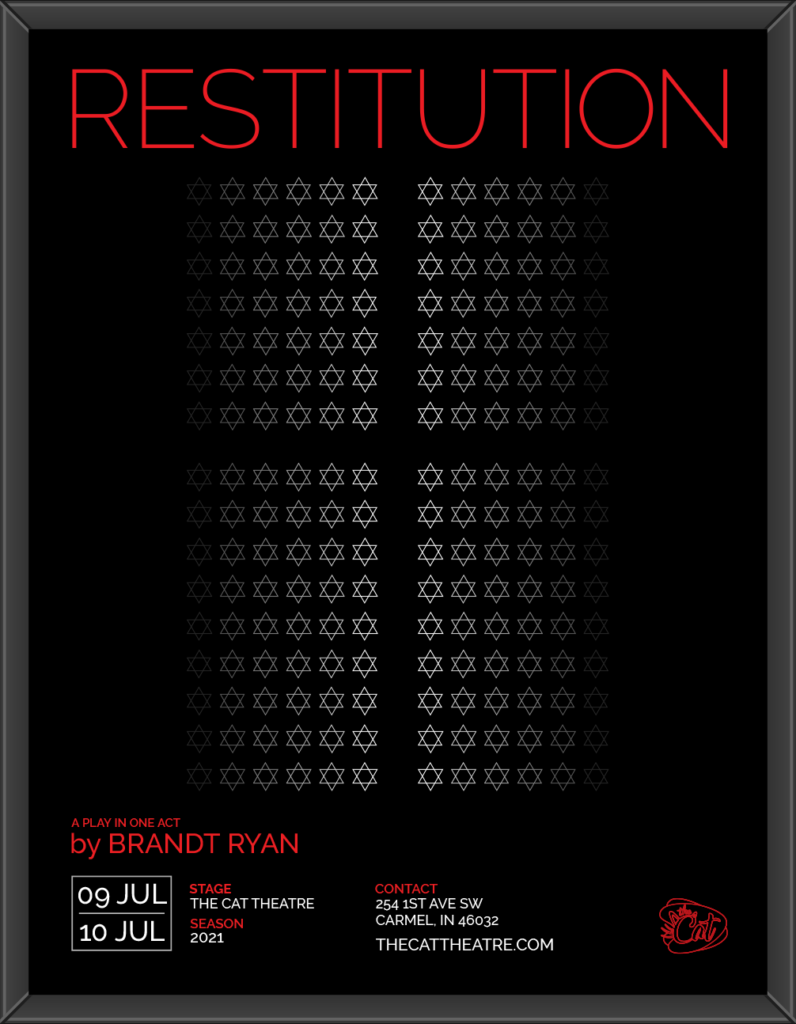Disclaimer: I read the play Restitution, by Brandt Ryan, in a professional capacity. In other words, I received remuneration to do so in order to offer feedback. This has not affected this review, which is entirely independent, my own initiative, and a result of my having found the text impressive.
Restitution, by Brandt Ryan, is a one-act play. It takes place on the platform of a New York subway station, late at night, in the summer of 1990. The title of the play alludes to restitution payments claimed by Jewish survivors of World War II, and is also a thematic element in the story.
The play involves two young grifters, Figgy and Margot, who are anxiously awaiting for someone to arrive in order for their swindling plan to take form. While waiting for the arrival of this person – a street performer being the only other presence on the platform – they discuss the details of their con, reflecting on ethics as well as practical dangers involved.
That’s basically all you need to know before entering the world of the play. Because the characters take over immediately, creating an engaging, dynamic story.


